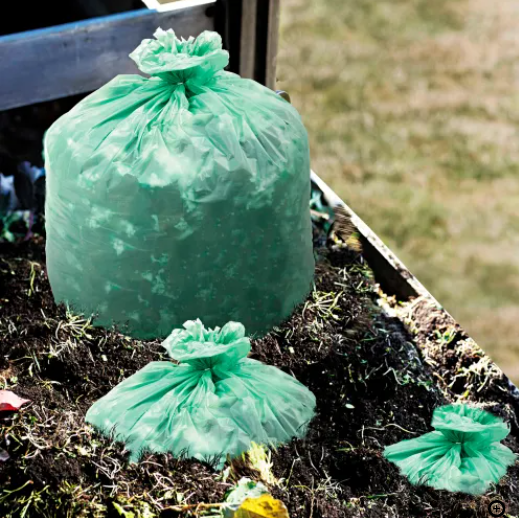How Long Does It Take for a Biodegradable Bag to Break Down?
In today's environmentally conscious world, biodegradable bags have become increasingly popular as an eco-friendly alternative to traditional plastic bags. But the question on everyone's mind is, "How long does it take for a biodegradable bag to break down?" In this article, we will explore the fascinating journey of biodegradable bags as they decompose and the various factors that influence their breakdown time.
Biodegradable bags are designed to degrade naturally when exposed to environmental conditions such as sunlight, air, and moisture. They are typically made from organic materials like cornstarch, potato starch, or sugarcane. Unlike conventional plastic bags that can linger in the environment for centuries, biodegradable bags promise a greener solution due to their ability to break down into harmless components.

The Decomposition Process
To understand how long it takes for a biodegradable bag to break down, we need to examine the intricate decomposition process.
When a biodegradable bag is exposed to sunlight, the process begins with the bag becoming more brittle. Over time, it starts to crumble into smaller pieces. This initial stage is crucial as it sets the foundation for the bag's eventual decomposition.
Microbes play a significant role in breaking down biodegradable bags. Bacteria and fungi colonize the bag, feasting on its organic components. This microbial action continues to break down the bag into simpler compounds.
As the bag fragments further, it becomes part of the soil, enriching it with valuable organic matter. This integration with the soil completes the decomposition cycle.
Factors Affecting Decomposition Time
The speed at which a biodegradable bag decomposes can vary depending on several factors:
Material Composition: The type of organic material used in the bag's production significantly influences its decomposition rate. For instance, bags made from cornstarch tend to break down faster than those made from other materials.
Environmental Conditions: Factors such as temperature, humidity, and oxygen levels can accelerate or slow down the decomposition process. Warmer and more humid environments tend to promote faster decomposition.
Bag Thickness: Thicker biodegradable bags may take longer to break down compared to thinner ones simply because they have more material to degrade.
How Long Does It Really Take?
The million-dollar question remains, how long does it actually take for a biodegradable bag to break down completely? The answer is not as straightforward as one might hope. In ideal conditions, some biodegradable bags can decompose within a few months. However, real-world scenarios are rarely ideal.
The actual time it takes can vary widely due to the factors mentioned above. In some cases, biodegradable bags can break down in less than six months, while in others, it might take several years. The inconsistency in decomposition times highlights the importance of understanding the context in which these bags are used and disposed of.
Environmental Impact
While biodegradable bags are marketed as a more environmentally friendly option, their impact on the environment is not without controversy.
Landfills: In landfills, where oxygen levels are low, biodegradable bags may decompose slowly and release methane, a potent greenhouse gas. This raises concerns about their contribution to climate change.
Marine Environment: When biodegradable bags find their way into oceans and water bodies, they can pose a threat to marine life if ingested. This underscores the importance of proper disposal and recycling.
Responsible Use: The true environmental benefit of biodegradable bags lies in their responsible use and disposal. Ensuring they end up in composting facilities or recycling programs can minimize their negative impact.
Conclusion
In conclusion, the time it takes for a biodegradable bag to break down depends on various factors, making it challenging to provide a definitive answer. While they offer a more eco-friendly alternative to traditional plastic bags, their environmental impact depends on how they are used and disposed of.
To make the most of biodegradable bags and reduce their impact on the environment, it's crucial to:
Choose bags made from environmentally friendly materials.
Dispose of them properly in composting facilities or recycling programs.
Be aware of the local regulations regarding biodegradable bag disposal.
So, how long does it take for a biodegradable bag to break down? The journey is complex, but by understanding the factors involved and making responsible choices, we can minimize the environmental footprint of these eco-friendly bags.
276
0
0

Comments
All Comments (0)